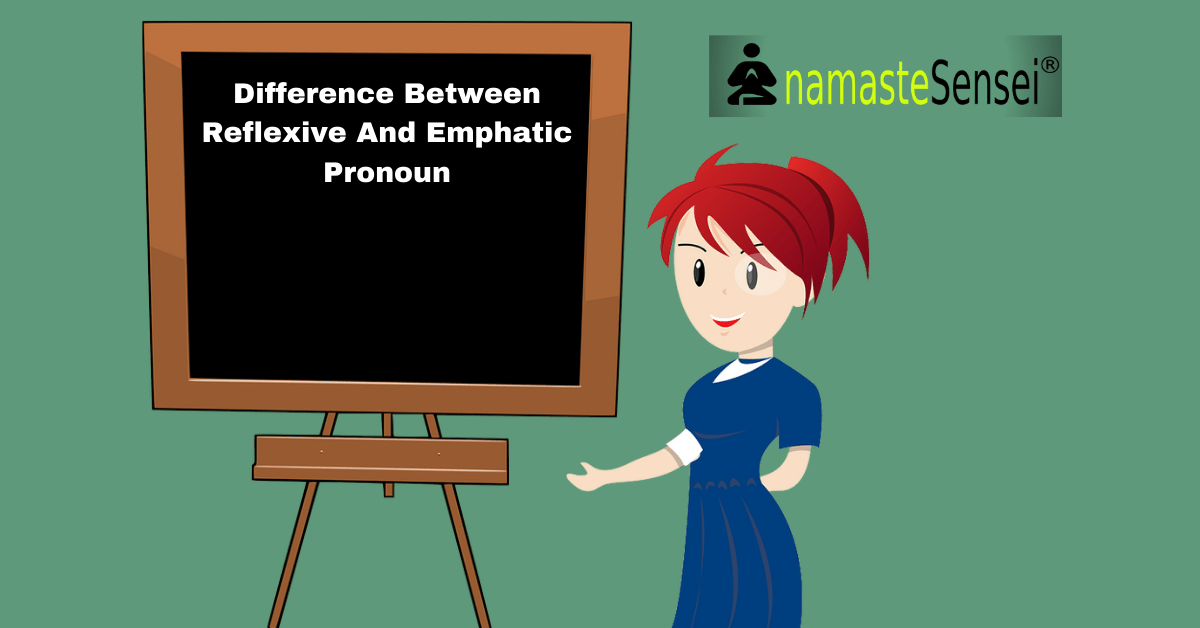Advertisements
Difference between Reflexive and Emphatic Pronoun | Reflexive and Emphatic Pronoun
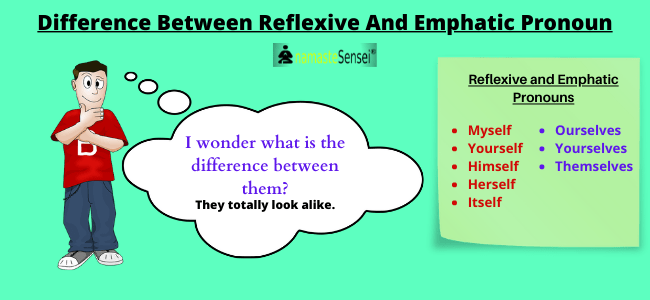
Difference Between Reflexive and Emphatic Pronoun
- Reflexive and Emphatic pronoun almost look similar.
- Both Reflexive and Emphatic Pronoun are made by adding ‘self’ in (My, your, him her and it) and by adding ‘selves’ in (our, your and them). (निजवाचक एवं दृढवाचक सर्वनाम My, your, him, her and it में ‘self’ जोड़कर बनते हैं। और (in, your and them) में ‘selves‘ जोड़कर।)
Reflexive Pronoun
- Reflexive Pronoun are called reflexive because the action done by the subject turns back (reflects) upon the subject. (निजवाचक सर्वनाम को निजवाचक इसीलिए कहा जाता है क्योंकि Subject द्वारा की गई क्रिया Subject पर वापस (reflect) होती है।)
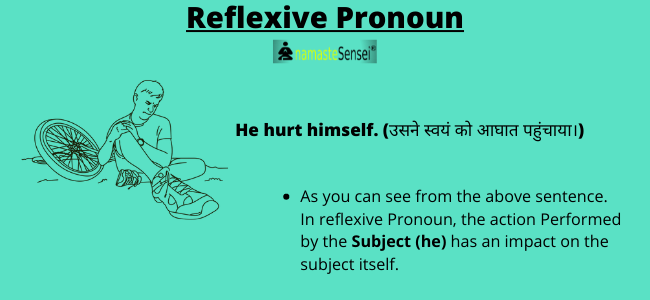
Emphatic Pronoun
- Emphatic Pronouns are used to put some emphasis on either noun or pronoun. (निजवाचक सर्वनाम और दृढवाचक सर्वनाम लगभग समान दिखते हैं। दृढवाचक सर्वनाम का प्रयोग किसी संज्ञा या सर्वनाम पर कुछ जोर देने के लिए किया जाता है।)
- Also The action done by the subject do not turn back (reflects) upon the subject. ( (साथ ही Subject द्वारा की गई क्रिया Subject पर वापस (reflect) नहीं होती है।)
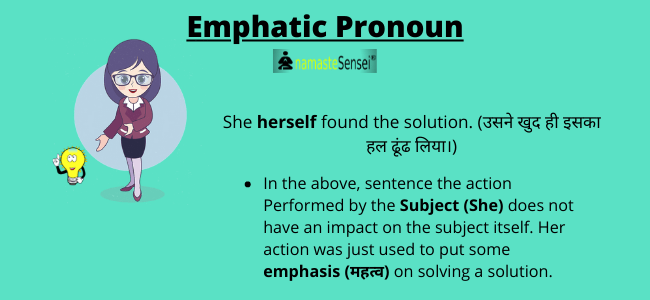
Advertisements
Reflexive and Emphatic Pronoun Example
Reflexive Pronoun Example
- He hurt himself. (उसने स्वयं को आघात पहुंचाया।)
- We ruined ourselves. (हमने खुद को बर्बाद कर लिया।)
- You ruined yourself. (तुमने खुद को बर्बाद कर लिया।)
- I hurt myself. (मैंने अपने आप को चोट लगाई।)
- They ruined themselves. (उन्होंने खुद को बर्बाद कर लिया।)
- She ruined herself. (उसने खुद को बर्बाद कर लिया।)
- In the above sentences the actions performed by he, we, you, I, they, she has impact on themselves. (उपरोक्त वाक्यों में he, we, you, I, they, she जो कर्म किए, उसका प्रभाव उन पर ही पड़ा।)
Emphatic Pronoun examples
- I myself solved this question. (मैंने खुद इस सवाल का हल निकाला।)
- She herself found the solution. (उसने खुद ही इसका हल ढूंढ लिया।)
- He himself came to see the patient. (वह खुद मरीज को देखने आया थे।)
- You yourself admitted you fault. (आपने खुद अपनी गलती स्वीकार की।)
NOTE– Emphatic Pronoun are used just after the Subject. (दृढवाचक सर्वनाम का प्रयोग Subject के ठीक बाद किया जाता है।)
Other Types of Pronouns
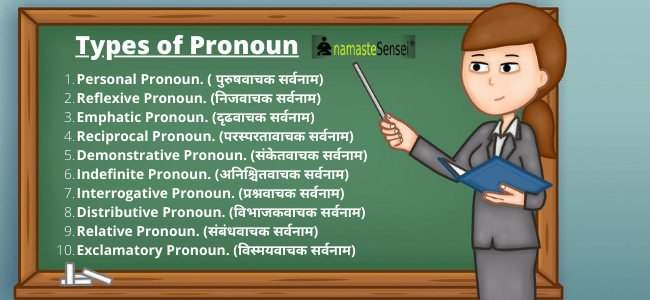
Types
- Personal Pronoun. ( पुरुषवाचक सर्वनाम)
- Reciprocal Pronoun. (परस्परतावाचक सर्वनाम)
- Demonstrative Pronoun. (संकेतवाचक सर्वनाम)
- Indefinite Pronoun. (अनिश्चितवाचक सर्वनाम)
- Interrogative Pronoun. (प्रश्नवाचक सर्वनाम)
- Distributive Pronoun. (विभाजकवाचक सर्वनाम)
- Relative Pronoun. (संबंधवाचक सर्वनाम)
- Exclamatory Pronoun. (विस्मयवाचक सर्वनाम)
Recommended Read – Types of Pronoun in Hindi and English.
Congratulations, you have finished complete article. If you have any doubts or queries, leave a comment below. We will respond as soon as possible.
Or Email Us At support@namastesensei.in
More Articles:
Advertisements
Any topic you want us to cover. Let us know.
